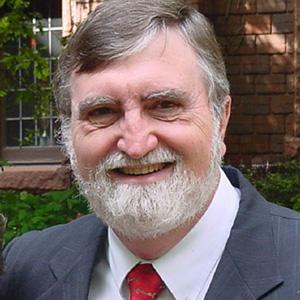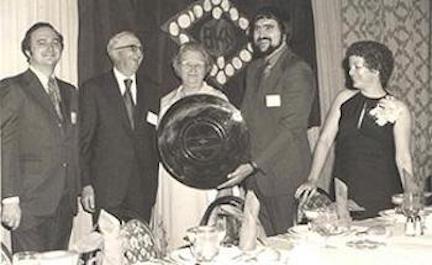Clinton Sylvester Hartmann Endowed Undergraduate Scholarship in Engineering

As an award-winning scientist and an engineer, he had an outstanding ability to formulate new problems, to generate new ideas and approaches, and to identify the tools needed for the practical implementation of solutions. During his career of more than 40 years, Clinton invented many SAW devices that are in common use today, including key enabling devices used in cellular telephones, pocket pagers, videotape recorders, automotive keyless entry systems, color television sets, garage door openers, and many others.
Clinton’s passions included science, math, engineering, and mentoring, as well as a tremendous love for his family, children, and grandchildren. He was a great mentor to many. During his last few months, he received numerous letters from people whose lives he touched.
Clinton graduated from The University of Texas at Austin with a BS in electrical engineering and received his MS in electrical engineering from the Massachusetts Institute of Technology. After completing his thesis and course work but prior to completing his Ph.D., he left to go to work.
Although he had no formal academic title, many of his colleagues with these titles regarded him as their teacher. Clinton began his career at Texas Instruments in the Central Research Laboratories working on SAW devices, and in 1978 he was recognized as a TI fellow. In 1979, Clinton co-founded RF Monolithics, Inc. of Dallas (RFM). In 1985, Clinton founded Hartmann Research, Inc., an independent SAW research company. He invented and developed SAW device types including the key filter in color television sets and a module used in cell phones.
In 2000, Clinton founded his third company, RF SAW, Inc. which developed RFID technology selected in 2006 by NASA for testing aboard the International Space Station. RFID was thought to be a possible method for streamlining logistics and tracking items for ground and space operations. SAW RFID was the focus of his work until the end of his life. Clinton published more than 100 technical papers and registered 52 U.S. patents in SAW technologies.

In 1976, Eta Kappa Nu, the electrical engineering honor society, named him the Outstanding Young Electrical Engineer in the United States. In 2000, he and Professor R. M. White received the W. G. Cady award “for pioneering the early understanding of SAW devices.”
Clinton was also a senior life member of the Institute of Electrical & Electronic Engineers. When asked about his lifetime accomplishments, Clinton said he did not want to be known for his multiple awards but instead for his philosophies on education, giving, mentoring, and leaving the world a better place than you found it.
Clinton’s family endowed the Clinton Sylvester Hartmann Endowed Undergraduate Scholarship in Engineering at The University of Texas at Austin to honor his memory. Those who wish to help memorialize Clinton may consider a donation to the fund.
How to Give
Learn more at giving.utexas.edu
Search Endowments
Look for inspiring stories
